Missouri House Democrats discussed what happened this week and looked ahead in the House.
Tag: Bridget Walsh Moore
VIDEO: House Equality Caucus media conference for 02-20-2025
The legislators of the Equality Caucus spoke to reporters and answered questions.
Bills could help Missourians with disabilities advance their careers, get married
Missourians living with disabilities could no longer have to reject raises and promotions, or even choose not to get married, in order to keep receiving needed state assistance, under legislation now awaiting the governor’s action.

Among legislation that was approved by the House and Senate last month was a provision to change the state’s Ticket to Work health insurance program within MO HealthNet. It would increase the limit on how much a person can earn before they lose benefits under that program. It would also not count up to $50,000 of a spouse’s income toward that limit.
Such state benefits provide to some Missourians with disabilities things like personal care attendants, medication, services, and equipment that allow them to have a job in the first place. Those Missourians must sometimes reject raises or promotions because the changes in income would not offset the benefits they would lose.
Another provision would require state agencies to use an “employment first” policy, directing them to recruit and keep employees with disabilities and create competitive ways to integrate them into workforces.
This legislation received broad, bipartisan support in both chambers. In the House they were carried by Springfield Republican Melanie Stinnett. She said legislators have been growing more aware of how state assistance programs designed to help Missourians are sometimes holding them back.
Representative Bridget Walsh Moore (D-St. Louis) lives and works with a disability, and has long advocated for these changes. She said these will yield, “immediate, tangible results that are going to benefit so many people.”
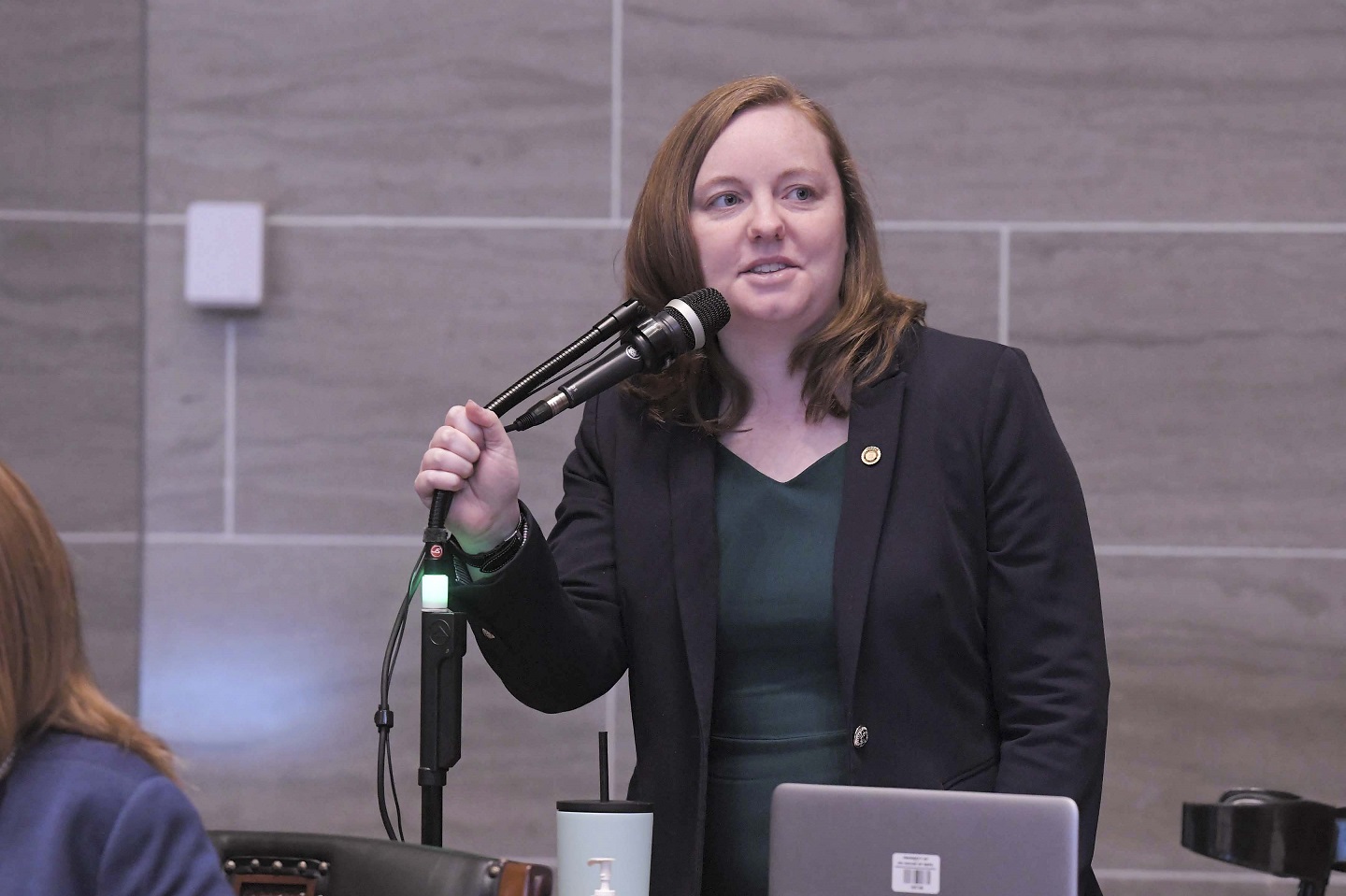
Stinnett is particularly excited about the provision to ease the limit on a spouse’s income, “So we’re not disincentivizing marriage for individuals with disabilities, which I think is really important.”
About that provision Walsh Moore mentioned a childhood friend of hers who developed lupus.
“She is still living with her long-time boyfriend. She couldn’t get married because she would lose her benefits because her boyfriend makes too much money but he can’t solely support her. She could get married later this year. That’s huge,” said Walsh Moore. “You hear all the time of people divorcing so they can deal with medical issues – just divorcing on paper so that they can handle whatever disease has come into their life. It’s awful.”
Supporters of the employment first language said it was long overdue and would allow Missourians with disabilities to work to their fullest extent, which benefits the whole state.
Stinnett said it is, “showing that Missouri really values individuals with disabilities in our workforce and wants them to have options for competitive, integrated employment within their communities.”
Walsh Moore, who had advocated for this legislation since being elected in 2020 and said it has been proposed long before that, said, “It’s very exciting to finally see it done … it didn’t get a hearing every year but every year it did, no one has ever testified against it and no one has ever voted against it.”
Governor Mike Parson (R) has until July 14 to act on Senate Bill 106 and Senate Bill 45, both of which contain these provisions. He could sign them into law or veto them, or let them become law without his action. If they become law, the provisions would become effective on August 28.
Help for low-income and disabled Missourians a focus in final days of session
In the House, proposals that would help Missourians with disabilities, those with low incomes, and new mothers on state assistance, are being given every chance to become law before the end of the session next week. The chamber has voted to add those pieces of legislation to several bills that are still in play in these final days.
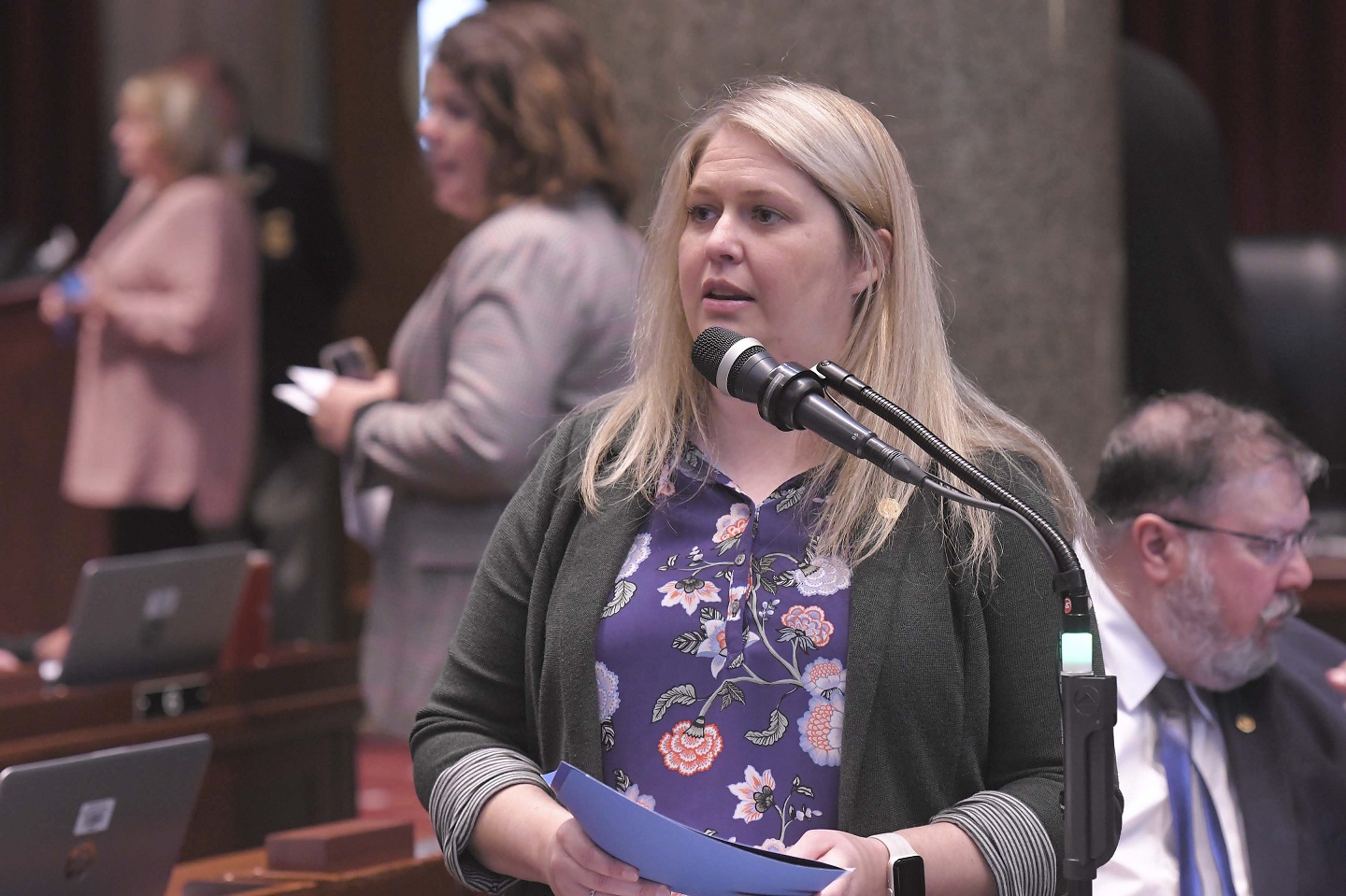
Among those is a transitional program meant to help people get off of state assistance gradually as their income increases. House members say the state’s assistance programs for low-income Missourians trap people in poverty because if they accept a raise that puts them above a program’s limits, they could lose more in state benefits than they gain from a raise.
The measure, sponsored by Representative Alex Riley (R-Springfield), would let people incrementally transition off of state assistance, “Trying to create this transitional system that encouraged people to work, that encouraged people to take those raises and to start to work their way up the income ladder and to hopefully, once this goes into effect, actually reduce the number of people receiving benefits in the state.”
That provision is the product of years of work by members of both parties. Lee’s Summit Democrat Keri Ingle called it a, “great bill … it’s been a bipartisan effort to essentially wean folks off of assistance, whether it’s TANF or SNAP, and make it easier for Missourians to get what they need to be successful working citizens while at the same time making sure that all of their needs are being met.”
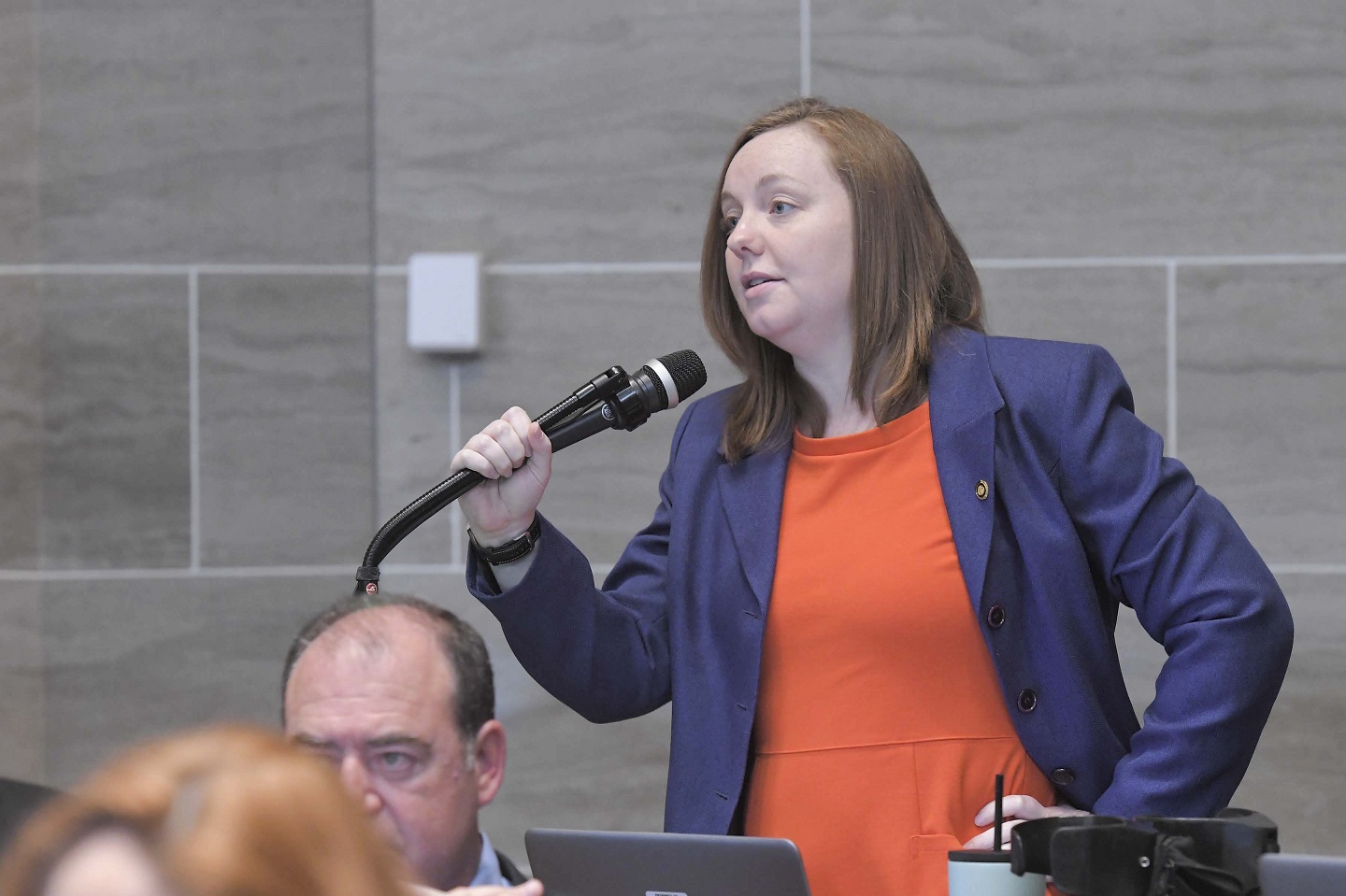
The House has voted this week to add that language to two bills. It did the same for language sponsored by Representative Melanie Stinnett (R-Springfield) that could allow individuals with disabilities to finally be able to advance in their careers without worry of losing state assistance.
The changes to the state’s Ticket to Work health insurance program within MO HealthNet would increase the limit to how much a person can earn before they lose benefits, and would not count up to $50,000 of a spouse’s income toward that limit. It would also direct state agencies to have policies to recruit and keep employees with disabilities and create competitive ways to integrate them into workforces.
“These are people who are actually begging us to work, who want to work, who want to get promotions, who want to seek new jobs. What [this] bill does is address the fiscal cliff, making sure that you don’t have to do quite as much of a tap dance that too many people in our state are doing, where you’re allowed to make so much money but only to a certain point,” said St. Louis Democrat Bridget Walsh Moore.
Walsh Moore, who lives and works with a disability, said the benefits that individuals stand to lose often enable them to have a job in the first place. Things like, “a personal care attendant, your health insurance your additional services and equipment that you receive through the state that allow you to work. This would address and allow you to make more money, put that money back into the economy because if you make more money you’re going to spend more money.”
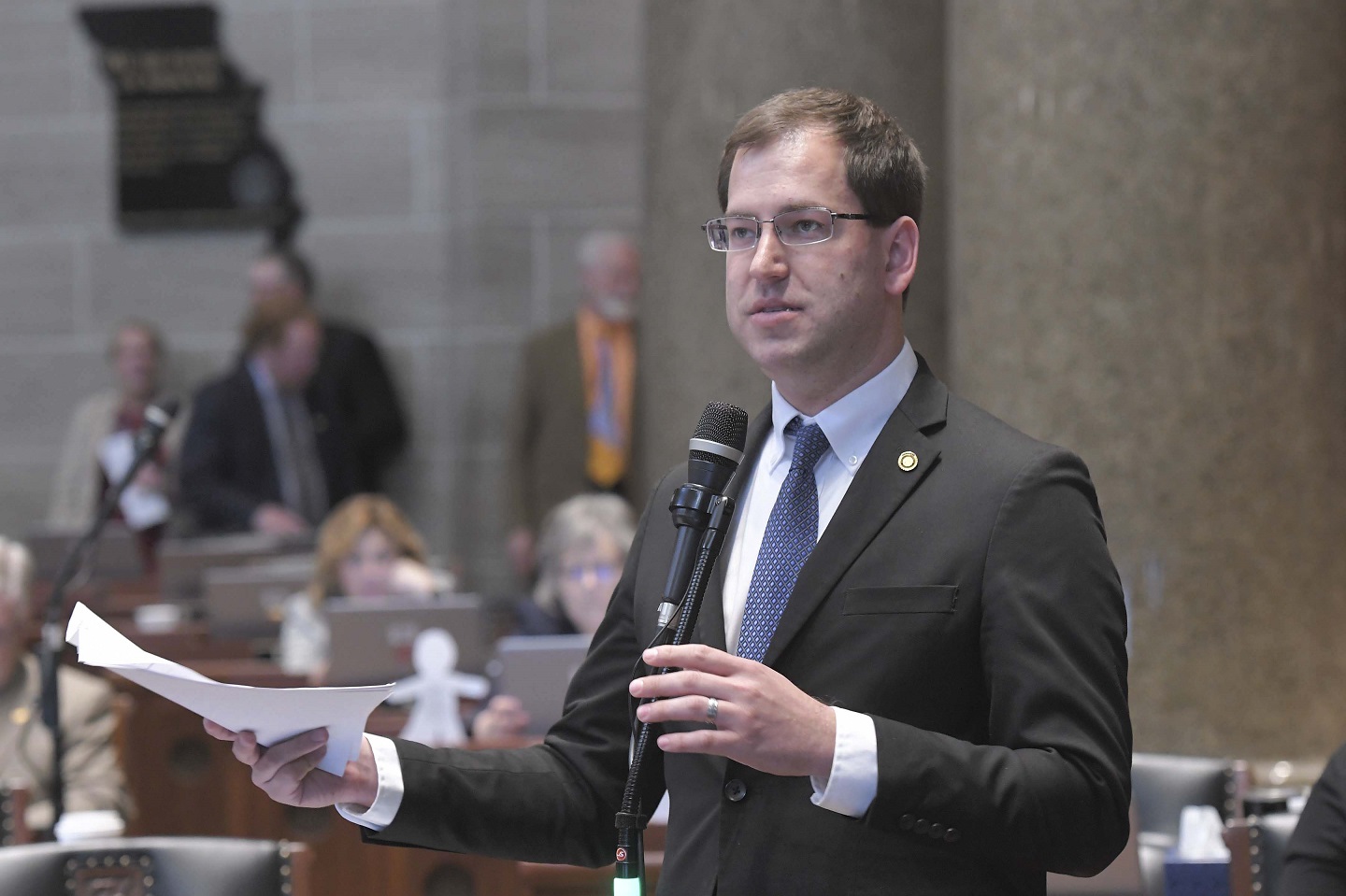
Also supported in the House this week has been a bipartisan plan to extend post-partum coverage under MO HealthNet or Show-Me Healthy Babies from 60 days to a year.
Stinnett, one of several sponsors of this proposal, said, “In 2019, 75-percent of pregnancy-related deaths in Missouri were determined to be preventable; those deaths that were attributed to things like embolism, hemorrhage, infections, concerns with cardiovascular health, chronic health conditions, and there’s one common denominator that can save these women’s lives, and that’s healthcare access.”
Several Republicans have cited this as an important pro-life provision. Representative Darin Chappell (R-Rogersville) said, “We who talk about being pro-life, I don’t know how we do that and then cut off the most vulnerable of our society after 60 days … I believe if we’re ever going to spend money [on benefits programs] it ought to be for those most vulnerable among us. Those very ones that we fought for them to be able to be born. We have to take care of them.”
Representative Tony Lovasco (R-O’Fallon) said even very conservative Republicans like himself could get behind all of these proposals, which don’t expand the state’s assistance programs.
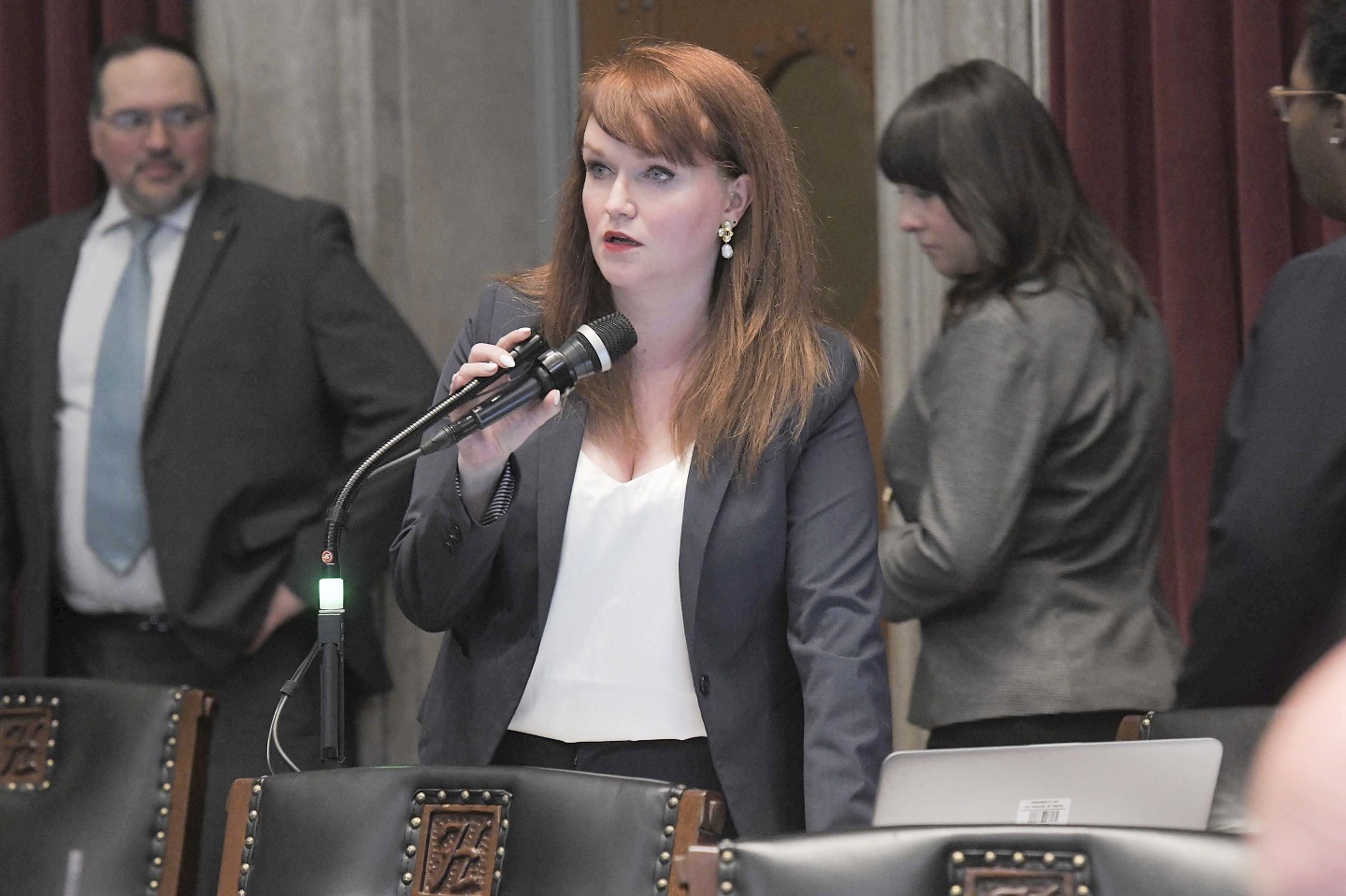
Sponsors are hopeful at least one of the bills containing these provisions will reach the governor’s desk before the session closes at 6pm on May 12.
House votes to extend opportunities for more jobs, greater salaries to persons with disabilities
The House has voted to expand access to job opportunities and greater salaries to Missourians with disabilities by passing legislation that, backers say, will let those people simply live their lives.

House Bills 970 and 971 make changes to the state’s Ticket to Work health insurance program within MO HealthNet. The key provisions increase the limit to how much a person can earn before they would lose benefits under Ticket to Work and disregard up to $50,000 of a spouse’s income, relative to that limit. It will also direct state agencies to have policies to recruit and keep employees with disabilities and create competitive ways to integrate them into workforces.
The bills are carried by Representative Melanie Stinnett (R-Springfield), whose career in healthcare and as a speech-language pathologist has included a great deal of focus on serving the disabled community. She said she is honored to sponsor this legislation.
She said these changes address outdated statutes that might have made sense in their time, but set limits that today are far too low.
The legislation has been offered in the House for about eight years. One person who has carried it throughout that time, Representative Sarah Unsicker (D-Shrewsbury), said individuals with disabilities have Missouri’s lowest unemployment rate, largely due to discrimination and lack of accommodation and understanding.

“Disability is a natural part of the human condition that affects everybody at some point in their lives, some sooner than others. The existence of a disability should not stop somebody from working and living to their fullest capacity,” said Unsicker. “There are people right now with master’s degrees who cannot work because of services they need just to get out of bed and survive and be physically able to meet the day even if they are mentally able to do incredible work. This will help them be taxpayers to the fullest extent of their ability. This will help people get jobs.”
Representative Bridget Walsh Moore (D-St. Louis) is a Missourian living and working with a disability and has also for several years sponsored this legislation. She said some people in the disabled community choose not to get married because if they do while the current limits are in place, they will lose their health benefits under Ticket to Work.
In her own life, said Walsh Moore, “If anything were to happen to me, my husband makes over $60,000. We would receive nothing from the state, zero support, and $60,000 for the two of us plus our child is not enough, especially with any medical needs I might have,” said Walsh Moore.
She said individuals need the benefits provided by that coverage to function daily, to hold jobs, and to live with dignity. She said she often thinks of a friend of hers who is in her 20s and has a master’s degree.
“Missouri is losing out twice. They’re losing out on her income tax, and that’s another 40-grand that would have gone into our economy,” said Walsh Moore.
She said the provisions aimed at state agencies are intended to create a system that can be a model outside of government.

“As the system stands, we have sheltered workshops and we have full competitive employment and no bridge in between. What this would do is basically set up the state as a model employer. Basically, we will figure out a program ourselves. All state departments will hire people with disabilities. We’ll kind of work out the kinks, figure out the program ourselves, and then we can sell it to corporate America,” Walsh Moore explained. “A lot of corporations I’ve talked to are very interested. They like the idea, they just don’t know what that looks like, and so we’re taking that burden off of them and saying we’ll do it first and we’ll figure it out.”
Stinnett, who is in her first year in the House, said this was one of the first issues she asked about taking up.
The House voted 151-0 to send the legislation to the Senate, and has amended it to other bills.
House votes to better prepare K-12 students with computer science courses
The House has voted to better equip the state’s children for working in tech industries that demand an education in computer science.

House Bill 2202 would require the state’s public high schools to offer some form of computer science class and allow students to count such classes toward graduation requirements for science and practical arts credits, to satisfy admission requirements at colleges and universities.
The bill expands on legislation approved in 2018 that allowed computer science courses to count toward math, science, or practical arts credits needed to graduate high school. That bill, like HB 2202, was sponsored by Holts Summit Republican Travis Fitzwater.
Fitzwater said the bill will help answer the needs of the growing list of innovative companies in Missouri.
The bill received unanimous support in the House, which voted 148-0 to send it to the Senate.
St. Louis Democrat Bridget Walsh Moore said this will help Missouri catch up.
Kara Corches with the Missouri Chamber of Commerce and Industry told House members Missouri is a top state for technology jobs with high rankings in both diversity, and women, in the tech workforce, and said HB 2202 would help build on that.
The bill would also create the Computer Science Education Task Force to help shape schools’ approach to computer education.
“It develops a broad strategy. Not just how do we come up with curriculums but how do we have a strategy on the whole for computer science opportunities for kids?” said Fitzwater. “Coming up with how we, as a strategy, think about educating our kids in these developing fields.”
That task force would be one entity that would receive demographic data to be collected under the bill. Walsh Moore said she was glad to see the inclusion of that effort toward ensuring that children of color and girls are encouraged to enter the computer science and STEM fields.
Fitzwater agreed, “We want to know what kids in the state are taking these classes. That’s why it’s in the underlying bill and I’m glad it’s there.”
HB 2202 also defines “computer science course” as any elementary, middle, or high school course that embeds computer science content with other subjects.
Earlier story: Missouri legislature completes special session, sends two bills to Governor Parson (From 2018)